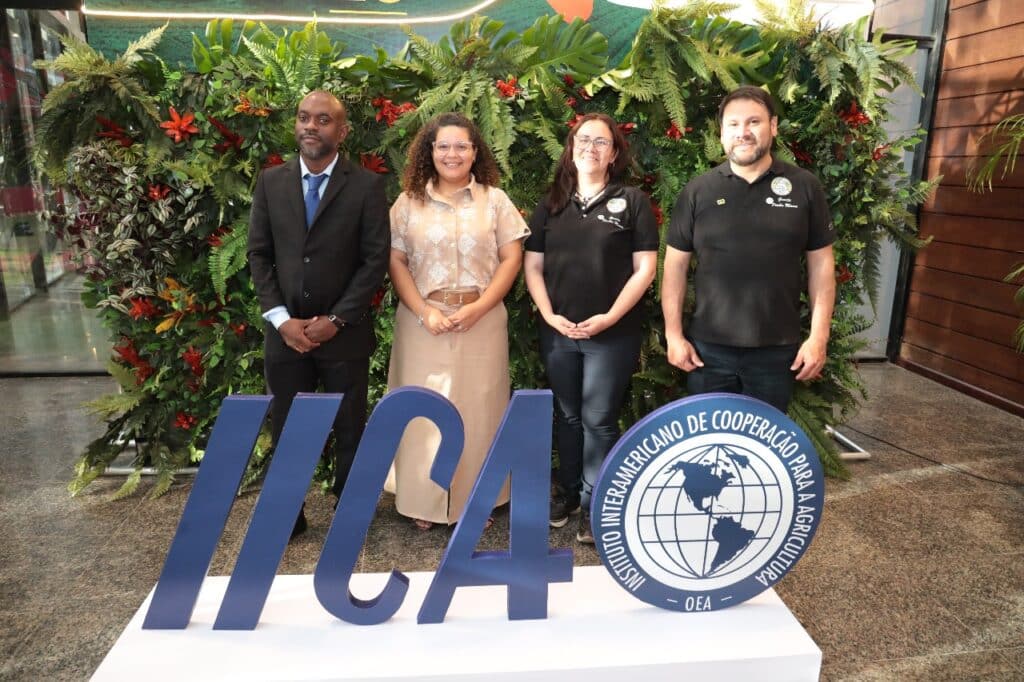
Duhaje Jennings, from Jamaica; Gessyane Ribeiro, from Brazil; Macarena Valdés and Marco Aceituno, from Chile, participated in a panel discussion entitled “Protagonists of a New Rurality”, which was followed by a lively debate with ministers and authorities.
Brasilia, 6 November 2025 (IICA) – Small farmers and rural advocates from different countries in the Americas shared their stories, demonstrated their love of the land and, along with ministers and deputy ministers of Agriculture from the hemisphere meeting in Brasilia, examined ways to promote rural retention and improve rural well-being.
Four leaders of rurality who had been recognized by the Inter-American Institute for Cooperation on Agriculture (IICA) were invited to attend the Conference of Ministers of Agriculture of the Americas 2025. The meeting, jointly organized by the Brazilian Government and the hemispheric organization, provided a common ground to determine how to further strengthen the position of the hemisphere’s agriculture sector as a strategic player in global food, climate and energy security,
Macarena Valdés and Marco Aceituno, from Chile; Duhaje Jennings, from Jamaica; and Gessyane Ribeiro, from Brazil, participated in a panel discussion entitled: “Protagonists of a New Rurality”, which was followed by a lively debate with ministers and authorities. This segment of the conference offered a first-hand look at the daily challenges faced in rural areas, which produce most of the food consumed by countries in the hemisphere.
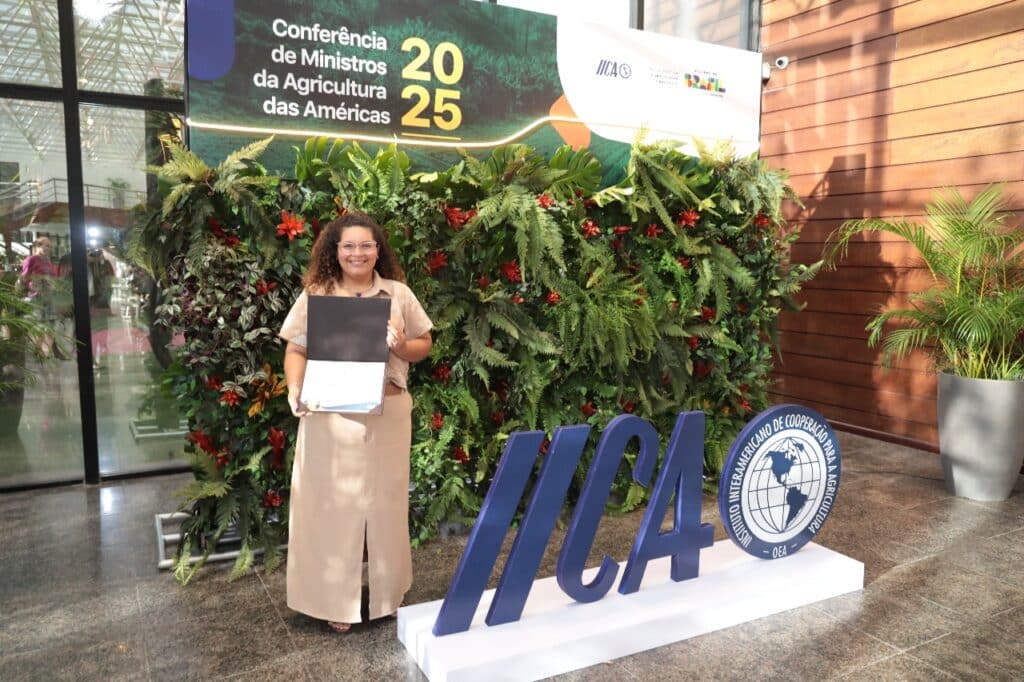
Gessyane Ribeiro, Leader of Rurality from Brazil.
In addition to the four Leaders of Rurality invited to the conference in Brasilia, IICA has conferred this award on almost ninety other men and women throughout the region. The selected individuals are positive examples of rural life, given their contribution to food security, community life and natural resource conservation.
During the three-day Conference of Ministers of Agriculture, the traveling photo exhibition “Leaders of Rurality, Guarantors of Food Security and Custodians of the Planet’s Biodiversity” was also on display. The IICA exhibition has already been mounted in several countries in the world.
Changing lives
Duhaje Jennings recalls that, “Many of my classmates aspired to be doctors, but I wanted to be a beekeeper ever since I was a child and visited my grandfather on his farm, where he produced honey. Many of my family members felt that I had no ambition and I too was lacking in confidence. Finally, I managed to study beekeeping, thanks to various IICA training projects. Today, I employ fifty young people and have helped to train more than one hundred people in the island”. He spoke about the work that farmers in Jamaica are doing to rebuild after the destruction caused by the recent passage of Hurricane Melissa through the Caribbean.
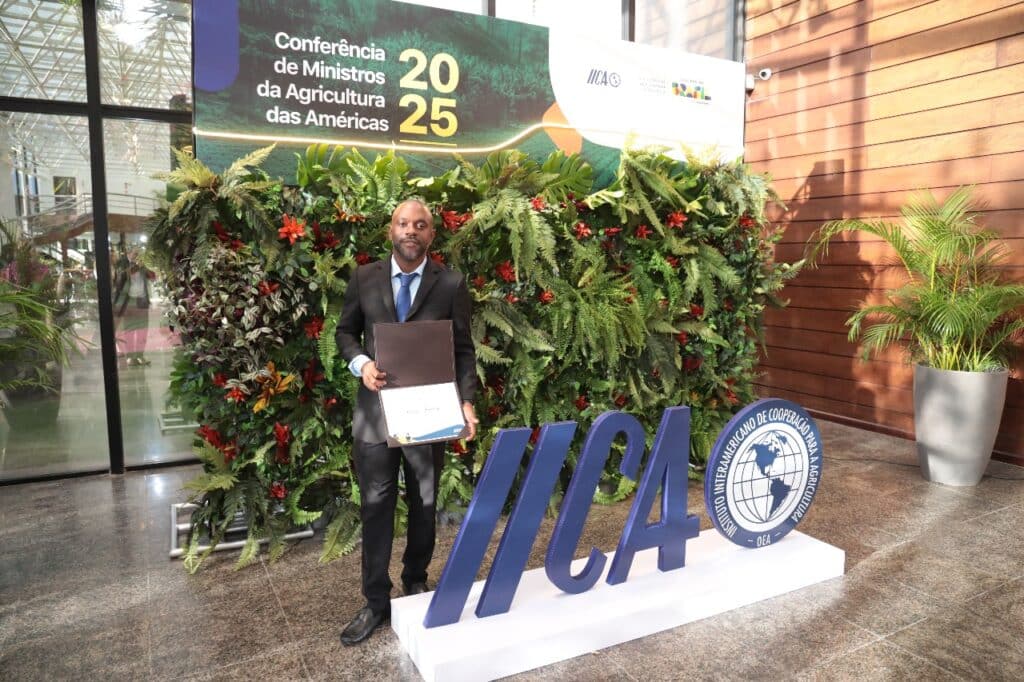
Duhaje Jennings, Leader of Rurality from Jamaica.
Speaking with emotion, he thanked IICA for its efforts. “This is the family that helped me when I had no one else”. He also urged the ministers to enhance public policies that benefit small farmers, noting that, “We must strengthen and support these communities, as a means of promoting our own dreams and changing the lives of people through agriculture”.
Macarena and Marco told the story of their farm La Pachamama, where food production has flourished amidst a severe drought that has ravaged Chile during the last few years.
“We didn’t plan this. It arose out of need. We were living in a metropolitan region of Chile, had lost our source of income and could no longer feed our children. We moved to a remote hilly area, and were isolated from the world, having no clue about agriculture and livestock production. There was no electricity, no running water and we had no job to earn an income. We then realized that the land could provide for us and much more”, said Macarena.
Marco continued, noting that, “Today we have 330 fruit trees with a large expanse of vegetation in a region that has been experiencing drought for twelve years. For eight years we have been generating electricity for our house, by converting the manure of our six goats into biogas. We added forage shrubs to feed the animals, which only require twenty liters of water for the entire summer. We have done of all of this despite no previous knowledge of agriculture”.
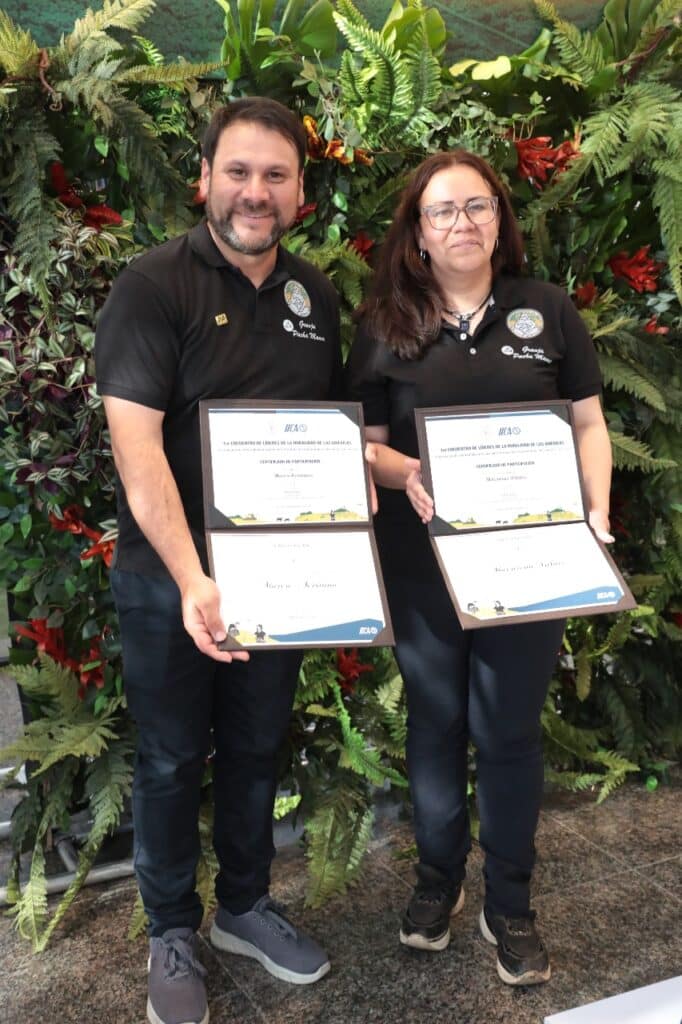
Macarena Valdés and Marco Aceituno, Leaders of Rurality from Chile.
On the other hand, Gessyane Ribeiro, farmer and agronomist from Goiás, Brazil, explained that her passion for agriculture stemmed from a longstanding family tradition. “My grandfather was a dairy, coffee, vegetable and fruit farmer. Today, I work with a network of female farmers to strengthen the leadership of female family farmers”.
The network that Gessyane heads assists women who develop renewable energy projects and also supports agroecology initiatives.
Today, the organization is working tirelessly to promote the construction of biodigesters in an arid area of Brazil. “We are implementing technologies, but the aim of the network is not only to assist them to access innovation, but to train them so that they too can promote these new developments”.
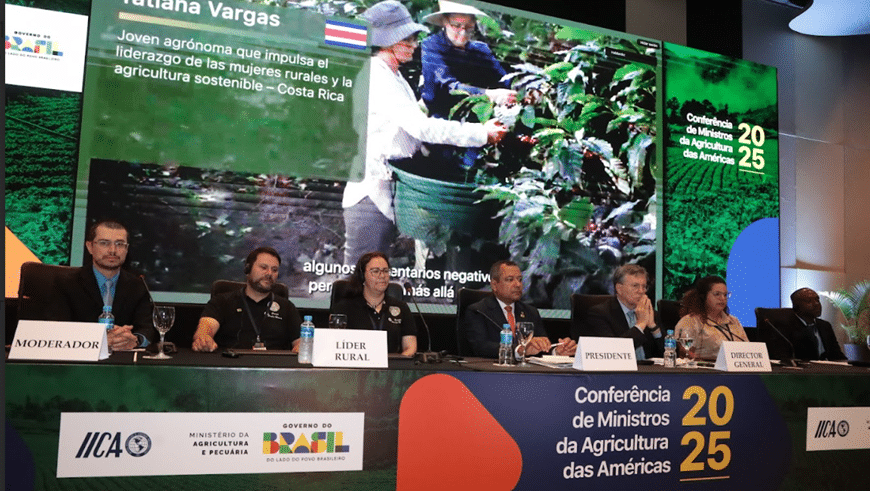
Randall Cordero, Manager of IICA’s Institutional Communication Division; Macarena Valdés and Marco Aceituno, Leaders of Rurality from Chile; Cleber Oliveira Soares, Deputy Executive Secretary of the Ministry of Agriculture and Livestock of Brazil; Manuel Otero, Director General of IICA; Gessyane Ribeiro, Leader of Rurality from Brazil; and Duhaje Jennings, Leader of Rurality from Jamaica.
More information:
Institutional Communication Division.
comunicacion.institucional@iica.int











